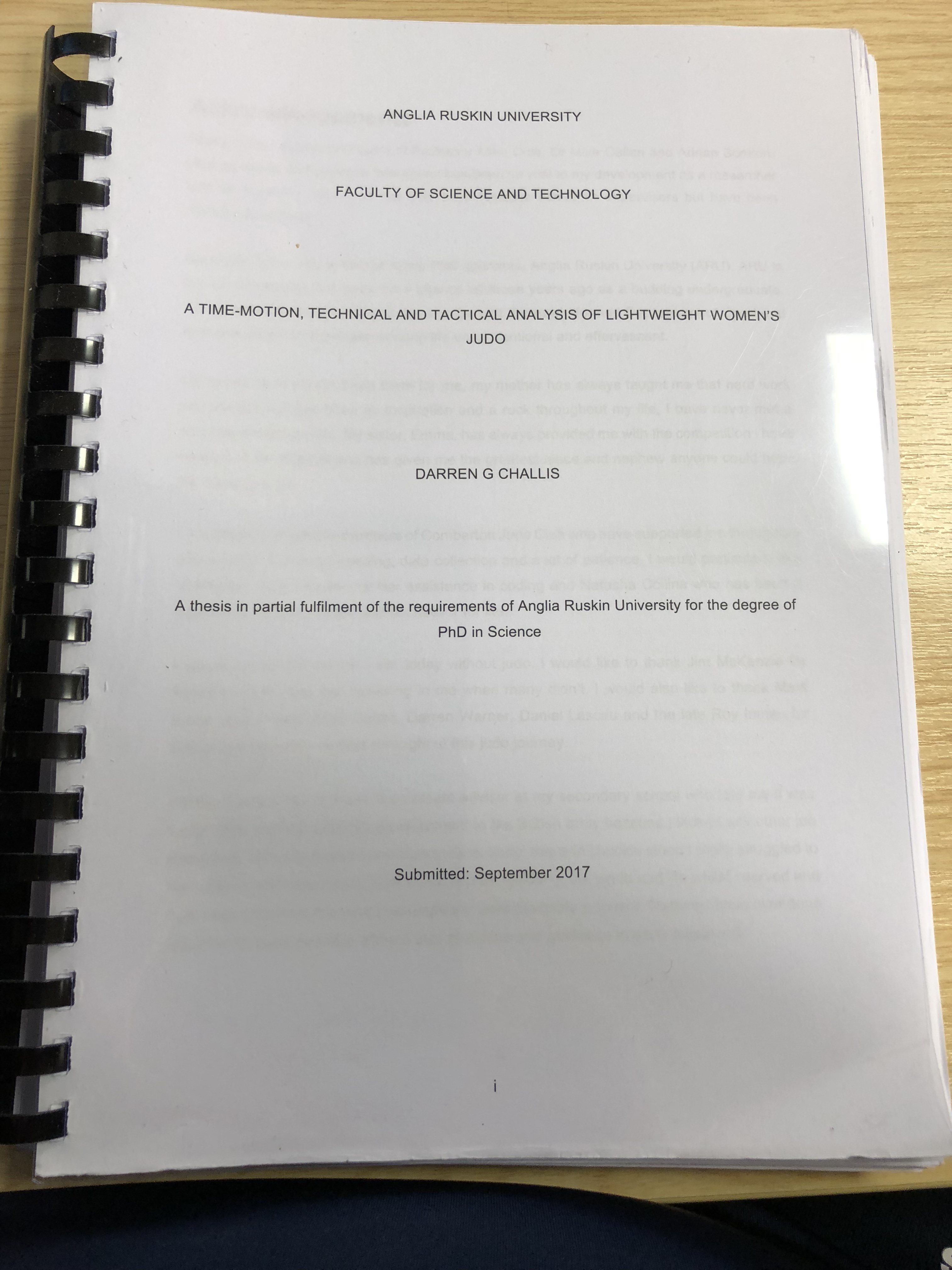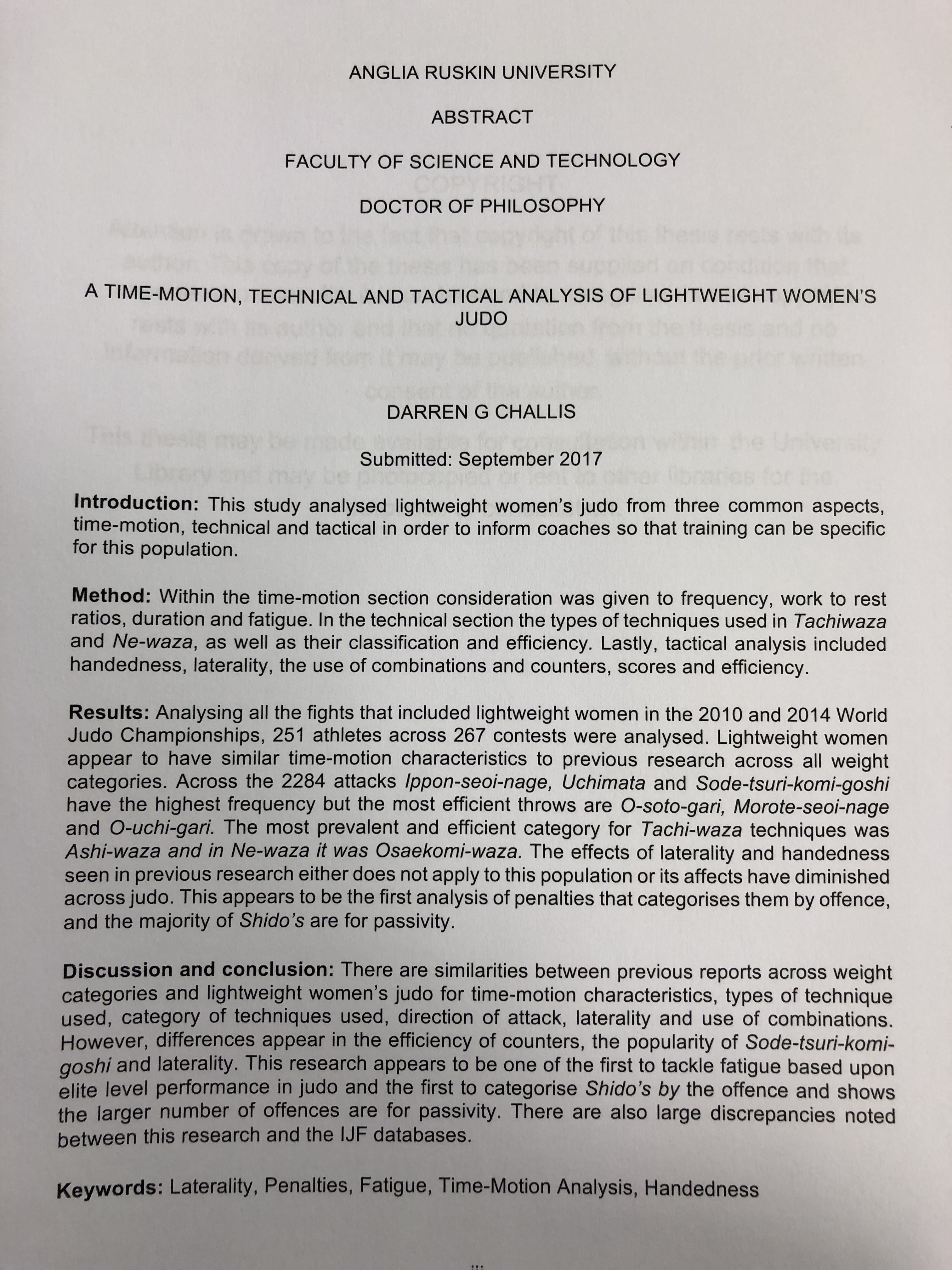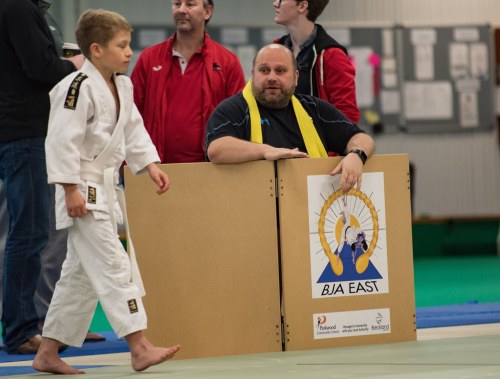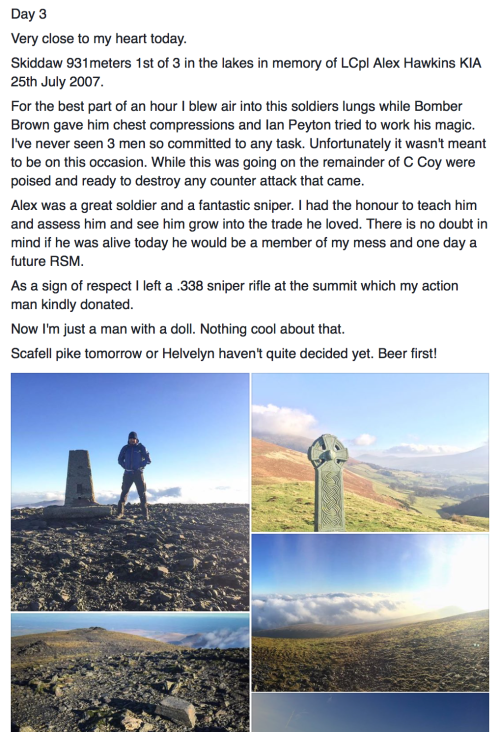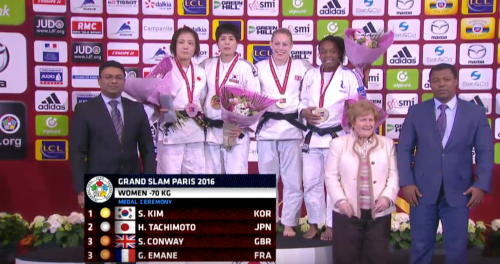I asked this question previously, back in April, following the European championships and I am going to following a similar process here. I will look at world championships results all the way back to 2000 and compare them using a variety of methods. Firstly let us consider the team.
Table 1: British team that was selected for the 2018 world championships in Baku alongside their current European, World and Olympic medals.
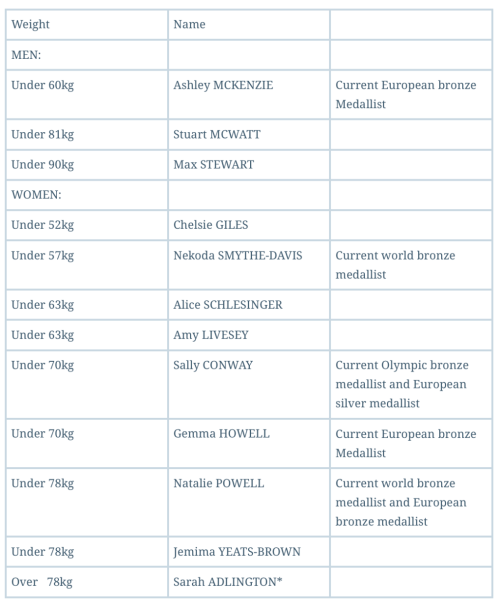
It should be noted that Alice Schlesinger is also a world bronze medallist and 4 times European medallist. Furthermore, Lucy Renshall was selected in u63kg but could not fight because of injury. She is the current European bronze medallist.
I think this is an outstanding team. Twelve athletes, five of them are current European, World or Olympic medallist. I don’t think anyone can criticise the strength of the team that went out to Baku. Maybe some would like to see more go and a less stringent selection process but that’s another issue.
So, is British judo getting better at a world level? Like previously I will go back to 2000 and consider results at the world championships.
The first criteria most would consider is the number of medals, crude but arguably fair. In this world championships we got one silver medal (Nekoda Smythe-Davis) and if we compare that back to 2000 we can see only last year we won two bronzes. Of course, you could argue 1 silver is better than two bronze, it certainly puts you higher on the medal table but then conversely it gives you less world ranking point. It’s neither here nor there to be honest. If you’re counting medals we got less.
Let us consider the results using world ranking points going back to 2000, this process kind of evens out the colour of the medals in my opinion.

Figure 1: World ranking points that would have been awarded based on the current world ranking list by year based upon medals won by Great Britain.
I think it is fair to say that for a long period of time Great Britain was world-leading in judo. This has been less so since 1996 but even then British judo could expect 700+ points using this measure. There was then a period of time we went below this, even winning no medals for four world championships. People will cite many reasons for this, I think the break up of the Soviet Union certainly contributed to the break in our world-leading streak but what contributed to the drop from 2009-2017 is another question and is certainly not going to be answered here. If we’re asking about a rise in British judo you can clearly see us moving out of this dark period and starting to win medals again when using this points system, back to where we were between 1996 and 2007.
We can consider our performance against other nations too. If we look at our ranking in the medal table at world championships.
Table 2: Great Britain medal table position at the world championships from 2000-2018.
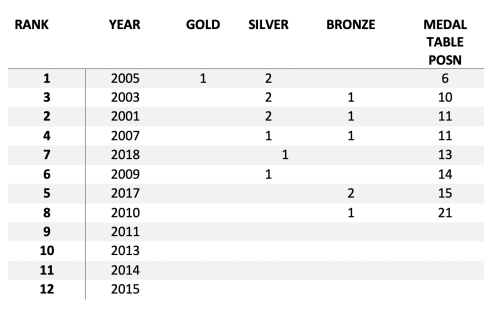
This table is a little harder to see a pattern in. You can certainly see we had better medal table positions in the first part (2000-2007) and that it is after 2007 the decline started. You can also see that 2018 ranks 7th in our overall performance when compared to other teams and that 2018 was our most successful year since the decline.
I think the other consideration is the retirement of Karina Bryant who would consistently win a medal, if not two at each world championships. I think Karina doesn’t get enough credit for her contribution to Great Britain performance over a very long period of time. When we talk about having a lot of funding, I think a large part of this is down to her.
The other question, of course, is world champions. Well, we haven’t had one of them since Craig Fallon in 2005 and this year was the closest we have come to one since 2009. Before that, it was Graham Randall in 1999 (we won 1750 points based on the above system in that worlds but it was on home ground).
So how do we conclude? Well, based upon medals we could have done better but let’s not forget we did have two 5th places and if both of these had won this would have given us over 1000 points making it our second most successful worlds this century. It’s also fair to say our two most consistent athletes did not have a great world championship, Sally and Natalie. This happens to everyone. A ‘normal’ result from them would have made this our second best worlds this century.
We should also consider the valiant efforts of Sarah Adlington who performed better than ever before and finished 5th as well as Jemima Yeats-Brown. Now, on the topic of Jemima. I’m a firm believer that when you make a mistake you should own up to it! I have always regarded Jemima as an athlete who would never perform and would also be injured for most of her career, and when I say always I mean I have voiced this concern for years. To be fair she has been injured a lot but in honesty, this weeks performance totally outshines that. She was outstanding. She fought with maturity, aggression, confidence and it was exciting judo! So I wholeheartedly apologise to Jemima and well done to those who supported her.
Last but not least, how could I end not mentioning Nekoda’s fantastic performance! What a great way to answer those who said last year was a fluke! She had a tough draw, she beat the current world champion and Olympic silver medallist in the semi-final, she beat Lien who although she is from Chinese Taipae trains at Komatsu and she beat the current European champion. She did great judo all day, was solid from the start and exciting to watch. Well done Nekoda!
So in conclusion, I think we actually had an unlucky world championships. I think this team could have produced more and therefore we are moving in the right direction in terms of world performance.
If you have any points or see a mistake please let me know in the comments below 🙂



